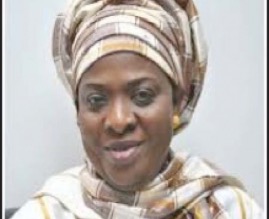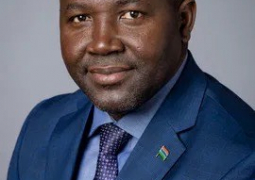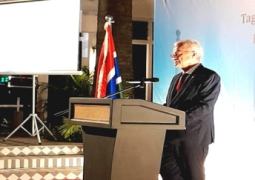
In a statement read by Haddy Handeh-Jabbie during the final of Sir Dawda Kairaba Jawara International Moot Court Competition at the International Conference Centre on Sunday, Hon. Jack-Denton said: “In order to develop a human rights culture. We must address the persistent issues of discrimination, inequality, and injustice.”
On further steps to promote human rights, she added: “Collective action is required, in which individuals and organisations work together to advocate for positive; addressing systemic concerns and change. It is not enough to be passive, active spectators; we must participate in the improvement of our society, ensuring that our actions are consistent with the ideas we advocate.”
She said creating and maintaining a culture of human rights and fundamental freedom is a moral obligation. “Let us hold firm in our commitment to human rights as we work to create societies where justice, equality, and freedom are accessible to everyone.”
She said Economic, Social, and Cultural Rights are frequently challenged in the area of human rights, compelling people to examine the very meaning of justice in a society where economic, social and cultural components are vital to human dignity.”
“While legal systems have typically concentrated on civil and political rights, the expansion of human rights discourse has made it inevitable that we should also address the justiciability of rights that include socioeconomic wellbeing,” she added.
The legal expert said ESCR, which includes the rights to education, health, job, and a decent standard of living, constitutes the foundation of a dignified human existence. However, she added that justiciability remains a contentious issue, raising basic concerns about the judiciary's role in correcting socio economic injustices.
“We imitate legal fights in moot court competitions, but the implications of our arguments stretch well beyond the bounds of this courtroom (moot court). The moot issue at hand reflects the real-world problems of numerous people whose economic, social, and cultural rights are frequently pushed to the margins of legal protection,” Hon. Jack-Denton further stated.
“The judiciary, traditionally seen as the guardian of justice, faces the challenge of striking a balance between interpreting the law and actively promoting social justice. It is unclear if the justiciability of ESCR fundamentally challenges the established limits of judicial action, or if the court is capable of handling the intricacies of socio-economic rights.”
She said many have contended that in order to protect fundamental rights, impartial and strong judiciary is necessary, as it acts as a check on any abuses of power, and guarantees that the most defenseless sections of society have access to legal representation.
“We must take into account both the human consequences of our choices and the complex nature of the law in our quest for justice. Understanding the social structure, economic inequalities, and the lived realities of people whose rights are in question is crucial for the justiciability of ESCR,” she said.
When it comes to justiciability of economic, social, and cultural rights, there is a need for action rather than simple theory, she added.





